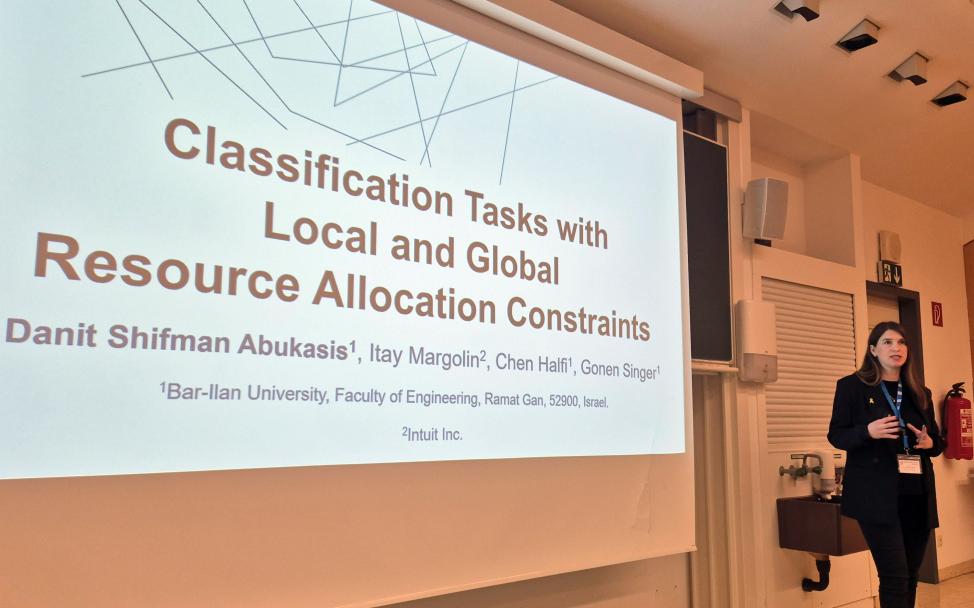Greetings from Vienna

Danit Shifman Abukasis, a doctoral student of Prof. Gonen Singer, attended the MATHMOD 2025 conference in Vienna on aspects of mathematical modelling for systems of static or dynamic nature. She presented her research on the link between machine learning and decision making
In February, Danit Shifman Abukasis, a doctoral student and member of Prof. Gonen Singer’s research group, attended MATHMOD 2025 – the 11th Vienna International Conference on Mathematical Modelling. Held at Technische Universität Wien, the conference explored theoretical and applicative aspects of mathematical modelling for systems of static or dynamic nature. The conference was co-sponsored by IFAC, and all research presented was published on IFAC’s PapersOnLine, hosted on ScienceDirect.
Shifman, 34, married and the mother of two-and-a-half-year-old Suf, lives in Had Nes, in the Golan Heights. She completed her bachelor's degree in Industrial Engineering and Management at Afeka College, followed by a master's degree in Electrical Engineering with a focus on Data Science at Bar-Ilan University. She is currently in her second year of doctoral studies in Data Science. Her advisor, Prof. Gonen Singer, has been mentoring her since her undergraduate studies, first as an instructor and then as her advisor throughout her master's.
“Over the years, Prof. Singer has been a key figure in my academic and professional development. Gonen successfully combines academic excellence with exceptional personability. He always knew how to encourage, motivate, and guide me to choose the research path that also aligns with my personal and professional goals. I am grateful for his professional guidance and personal support over all these years,” she says.
Her research focuses on integrating machine learning with decision-making.
“I study resource allocation problems for classification tasks that incorporate various types of constraints that limit both classification and allocation. I develop methodologies for combining machine learning with operations research using different approaches that offer solutions to various problems,” she explains.
“At the conference, I gave a 20-minute talk in which I presented a two-phase model for classification problems with global and local resource allocation constraints (‘Classification Tasks with Local and Global Resource Allocation Constraints’). The innovation of this research, conducted in collaboration with Intuit, lies in combining the classification model with the constraint problem and in modeling a constraint problem that doesn't exist in the literature. Given the research's success, the proposed model is now being implemented in the company.”
Last Updated Date : 04/06/2025



